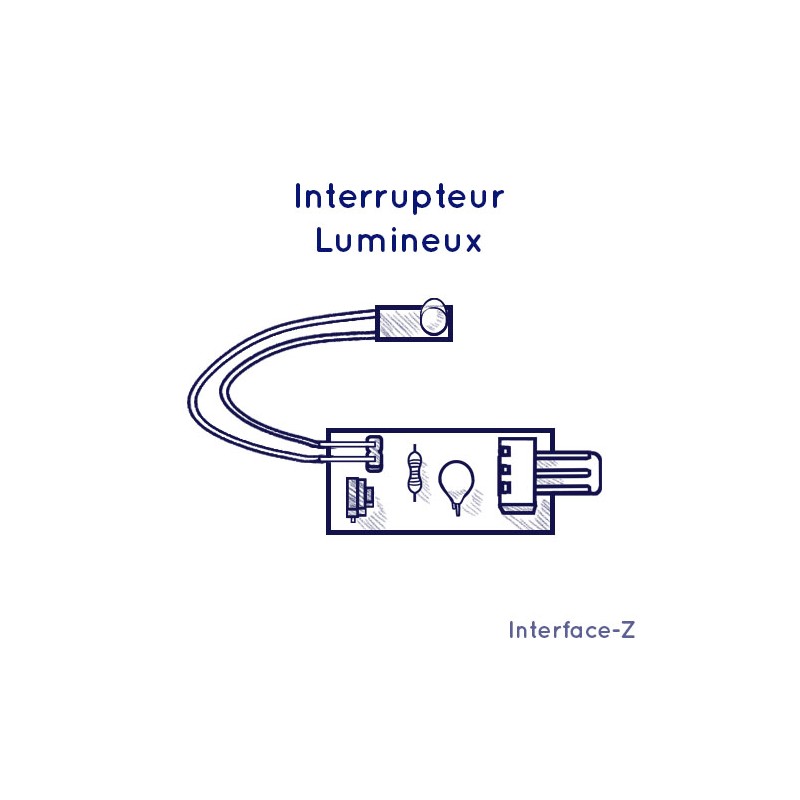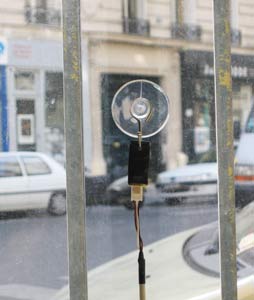












This small sensor is a switch that doesn't need any physical contact. One can just move a hand within its detection range to actuate it. This actuation can be used to trigger a light animation, play a video or modulate sound.
As this sensor works even through glass, it can be placed behind a window, even though the range is reduced.
Range : 10 cm with no obstacles, 3cm through a window.
Light source : an infrared LED attached to the sensor card.
Sensor seen on the inside of the window, hung to a sunction pad in this particular case.

This sensor works with reflected light, meaning the light emitted by the LED is reflected on an obstacle (a hand for instance) and comes back to the sensor. The advantage of this principle is that the sensor and the light source are in the same place, on a small card.
This sensor can be linked to an autonomous light driver that reacts to the presence of a person, and controls graduated lighting.
This sensor being small, it can be hidden inside an object in front of which a visitor can pass a hand.
It is also possible to use this sensor in direct light and not reflected light. The light source must however be linked to the sensor card : the LED is then separated from the card by a wire. This lets one create small sized infrared barriers.
Range : 75 cm maximum (it's easier to stay under 60 cm). The LED and the sensor must be exactly in front of each other face to face.
Light source : Infrared light integrated on the sensor card.
Wire length between the card and the LED : default length 50 cm (contact us if more is needed)
This device creates a thin virtual barrier that reacts when it is cut through by an obstacle, if something comes between the sensor and its light source. This can be a hand, a body, or a mechanical device, such as a turning propeller.
This can be a way of creating a blowing sensor : a light spin of a helix can be created by someone blowing, and a very reactive light barrier can measure the rythm at which the fin spins.
For music, it can be used as an invisible string. Every time a finger passes through the barrier, a sound is played.
Various example, demonstration and explanation videos are available on our Vimeo account for Interface-Z.
Light barrier switch - Interface-z
This short demonstration video (made by Lysandre Fournié) shows the data from a light barrier switch and anoptical fork barrier.
Il n'y a pas d'autres documents disponibles ici pour le moment.